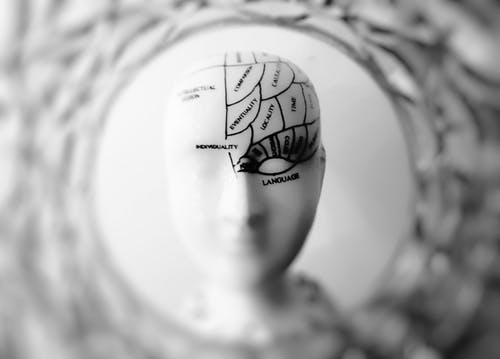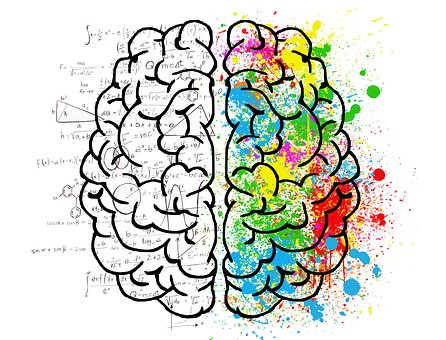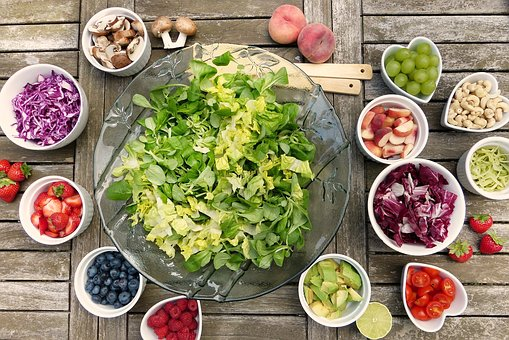Do you look after your brain? Did you know powering the brain with the right nutrition, vitamins and minerals as well as balancing the brain’s neurochemistry can improve its ability to work for optimum health? Nutritional deficiencies have been shown to contribute to the development of many disorders.
Read below and find out what vitamins can help brain functioning properly to keep you active, learning and support your memory!
The main supplements for brain health include omega fatty acids, B vitamins, vitamin C, vitamin D, Huperzine-A, DHA, Curcumin, Flavanols, Coenzyme Q10, and Ginkgo biloba.

B vitamins, specifically B6, B9 and B12 aid in brain function; lack of these B vitamins, can impair the conversion process and as a result, homocysteine levels increase. A 2013 study showed that not only do B vitamins slow brain shrinkage, but they slow shrinkage in brain regions that are impacted by Alzheimer’s disease. This is because B vitamins lower homocysteine, which leads to a decrease in gray matter atrophy, slowing cognitive decline. A Finnish study in 2010 found people who consume vitamin B12-rich foods may reduce their risk of Alzheimer’s in their later years. For each unit increase in the marker of vitamin B12 (holotranscobalamin), the risk of developing Alzheimer’s was reduced by 2% (Hooshmand et al., 2010).
Rich food sources of B vitamins are turkey, beef, chicken, wild-caught salmon, sweet potatoes, potatoes, sunflower seeds, pistachios, leafy green vegetables, especially broccoli, asparagus, spinach, and a wide variety of beans like lentils, pinto beans, garbanzo beans, black beans, and kidney beans.
Vitamin C is a vital antioxidant molecule in the brain, it participates in neuronal maturation and myelin formation (the electrically insulating layer around nerves) and is also involved in transmitting signals through the nervous system via neurotransmitters. Additionally, vitamin C maintains the integrity and function of several processes in the vascular system, which helps brain function (Hansen et al., 2014). Food sources of vitamin C are sweet peppers, chili peppers, Brussel sprouts, broccoli, artichokes, sweet potato, tomato, cauliflower, kale, papaya, strawberries, oranges, kiwifruit, grapefruit, cantaloupe, and lemons. Also, sauerkraut (fermented cabbage) is about six times higher than unfermented cabbage, not only an excellent way to boost your vitamin C intake, but also beneficial in feeding your friendly gut bacteria!
Vitamin D helps improve memory and increase your ability to solve problems. There are receptors for vitamin D throughout the central nervous system and in the hippocampus. Additionally, vitamin D can activate and deactivate enzyme activity in the brain and the cerebrospinal fluid both which are involved in nerve growth. Many animal studies have shown not only does vitamin D protect neurons, which can protect against dementia and Alzhiemers, but it also reduces inflammation. A 2017 systematic review and meta-analysis found low vitamin D status was associated with cognitive decline and poor cognitive performance among participants without dementia. Another study found those who were vitamin D deficient experienced a faster rate of cognitive decline. Additionally, vitamin D deficiency was associated with a nearly 3-fold increased risk of developing Alzheimer’s disease (Sturges, 2019). While you can get some vitamin D from grass-fed meats and other whole foods and fortified foods, sun exposure is an ideal primary source.

Docosahexaenoic acid (DHA) is an omega-3 essential fatty acid and around 99% of the human population are omega-3 deficient, resulting in symptoms like memory loss, depression, mood swings, dementia and Alzheimer’s disease. DHA can be found in wild salmon and other forest berries and seeds. Fatty fish that is low in mercury, such as wild-caught salmon, sardines, and anchovies, as well as organic grass-fed beef are some of the most concentrated sources of omega-3 fats.
Ginkgo biloba is derived from Ginkgo tree leaves, it improves blood flow to the brain and acts as an antioxidant. Studies have found that in healthy people, ginkgo boosts memory and cognitive speed patterns, while some even show that it can help with memory problems caused by dementia or Alzheimer’s disease. It controls the progression of dementia symptoms.
Huperzine-A is derived from Chinese moss that is a cognitive enhancer which reduces impairment of the brain due to old age and stress. Huperzine achieves this by increasing Acetylcholine levels throughout the body. Acetylcholine release sodium in your body, which allows muscle contraction. Also, it promotes neuroplasticity, which allows your brain to adapt, learn and store new information.
L-alpha-glycerylphosphorylcholine (Alpha GPC) is a rich source of choline, a B complex brain supplement which is important for brain development. Alpha-GPC stimulates a chemical in the brain called Acetylcholine. This chemical is vital for developing memory and learning functions. Primary uses of it range from treating various kinds of degenerative diseases like dementia, stroke and Alzheimer’s. It is available to be taken orally or as a shot and also available as a dietary supplement to improve memory.
At Perfect Balance Clinic, one of our qualified Nutritionists can help you maximise your brain function by helping you make adjustments to your nutrition, lifestyle and exercise routine so your brain is functioning properly, allowing you to feel cognitive and healthy.

If this resonates with you then…
Take advantage of our 15-minute sessions either with a Nutritionist or Functional Medicine Practitioner, designed to give you the support you need with your concerns and to get you started on your road to recovery. Find very quick and effective results!
This article was written by our team of specialist therapists at Perfect Balance Clinic. If you would like more specific advice about how our team can help you with this condition or symptoms you may be having, please complete the contact form below and one of the team will get back to you shortly.
References
Feart, C. et al. Associations of lower vitamin D concentrations with cognitive decline and long-term risk of dementia and Alzheimer’s disease in older adults. Alzheimer’s & Dementia, 2017.
Goodwill AM, Szoeke C. A Systematic Review and Meta-Analysis of The Effect of Low Vitamin D on Cognition. Journal of the American Geriatrics Society, 2017.
Hansen, S., Tveden-Nyborg, P. and Lykkesfeldt, J. (2014). Does Vitamin C Deficiency Affect Cognitive Development and Function?. Nutrients, 6(9), pp.3818-3846.
Hooshmand, B., Solomon, A., Kareholt, I., Leiviska, J., Rusanen, M., Ahtiluoto, S., Winblad, B., Laatikainen, T., Soininen, H. and Kivipelto, M. (2010). Homocysteine and holotranscobalamin and the risk of Alzheimer disease: A longitudinal study. Neurology, 75(16), pp.1408-1414.
Sturges, M. (2019). Vitamin D and cognitive impairment. [online] Vitamin D Council. Available at: https://www.vitamindcouncil.org/health-conditions/cognitive-impairment/# [Accessed 23 Sep. 2019].







